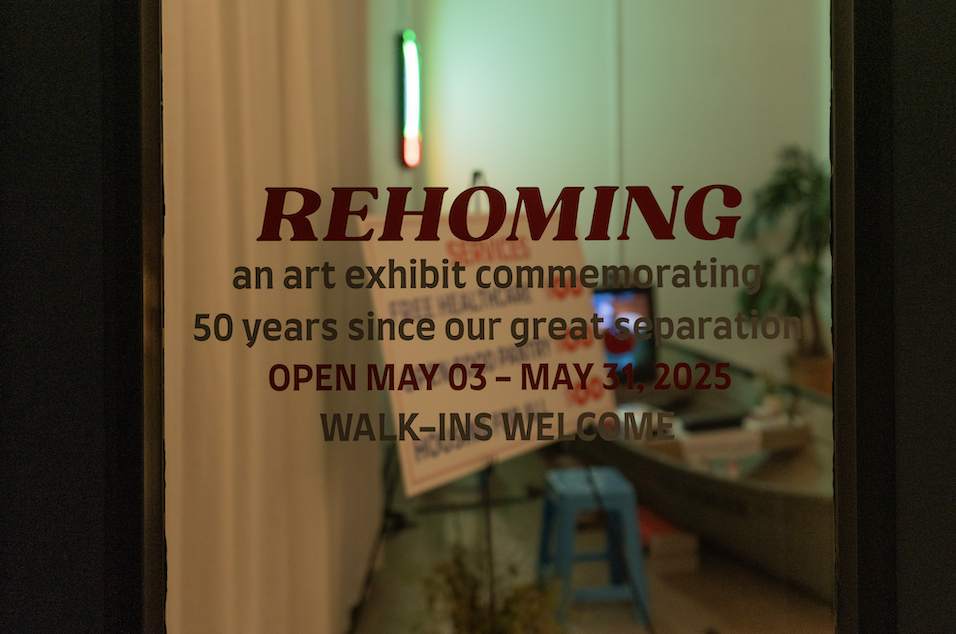
WALK-INS WELCOME
WALK-INS WELCOME
Curatorial Statement
Against the current criminalization of immigration, RE/HOMING: WALK-INS WELCOME takes up the lessons learned from the “end” of the American War in Vietnam fifty years ago to re-cast the gallery space as a site of unequivocal welcome for refugees and immigrants.
WALK-INS WELCOME uses the common message found on nail salon windows, transforming Vietnamese women’s presumed readily available service labor to push for alternative investments and redistributions towards community care. The expression directly resists the regulatory infrastructure of settlement/colonization—identification checkpoints, border zones, detention camps, resettlement agencies, welfare offices, prisons, and racially segregated housing and schools—that continue to contain and separate refugee lifeworlds for ongoing dispossession and exploitation.
RE/HOMING materializes spaces that are real and imaginative to receive and make homes for the discarded-yet-grievable lives, littered in the wake of masculinist war and nation-building and washed ashore, unable to be captured or co-opted by dominant commemoration regimes.
The exhibit features the works of five feminist/queer Vietnamese artists living in the diaspora. Their pieces span a wide range of mediums and materials—video work, performance, soft and hard sculpture, photography, and mixed-media installations. From Quyen Nguyen-Le’s mobile nail salon and Christina Hughes’ visiting booth to Ly T. Nguyen’s maternal altar and Nhung Walsh’s audiowork, visitors eventually land at N’s bureaucratic checkpoint with paper made of rau muống—a wild plant categorized as invasive.
Developed in close collaboration, each work tends to the uneven ways ancestral memories and critical knowledges disperse and sprout across homelands and the diasporas: silently embodied and spatialized in generational, gendered, and migrating bodies; laboring through waterways and urban dwellings; and under surveillance and nation-state imprisonment. Together, they contemplate the displaced labors of feminized worldbuilding and care that obscure, evade, and alter colonial constructions of livability.
